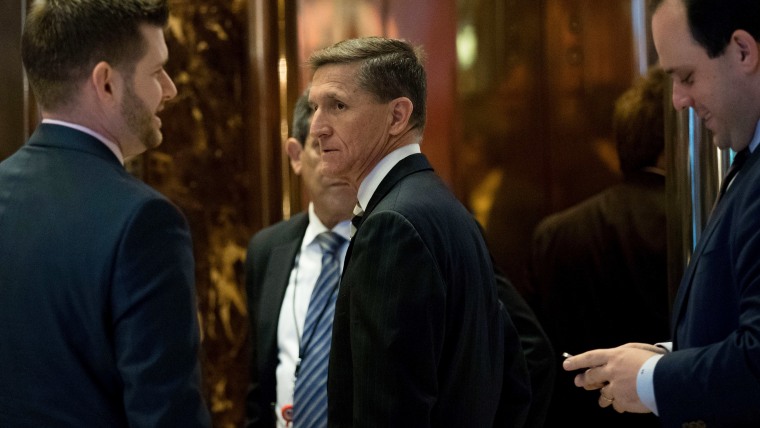Michael Flynn, Donald Trump's National Security Advisor, has maintained close ties to Moscow in recent years, even getting paid by the Kremlin's propaganda outlet. It therefore caused quite a stir a month ago, when the Washington Post noted that Flynn phoned Russian Ambassador Sergey Kislyak "several times" on Dec. 29, one day after President Obama retaliated against Russia for its role in the election hacking scandal.The question, of course, was why Flynn made those calls. If he tried to undermine U.S. sanctions, for example, urging Russia not to retaliate because the Trump administration would pursue a more favorable policy, the communications may have been illegal under the Logan Act.Team Trump said these were routine and uncontroversial calls, and Press Secretary Sean Spicer told reporters Flynn and Kislyak merely spoke to coordinate upcoming conversations between the American and Russian presidents. As the Washington Post reported overnight, the White House's denials may have been false.
National security adviser Michael Flynn privately discussed U.S. sanctions against Russia with that country's ambassador to the United States during the month before President Trump took office, contrary to public assertions by Trump officials, current and former U.S. officials said.Flynn's communications with Russian Ambassador Sergey Kislyak were interpreted by some senior U.S. officials as an inappropriate and potentially illegal signal to the Kremlin that it could expect a reprieve from sanctions that were being imposed by the Obama administration in late December to punish Russia for its alleged interference in the 2016 election.
As recently as Wednesday, Flynn insisted, on the record, that he did not discuss sanctions with the Russian ambassador. Yesterday, however, the White House national security advisor said though a spokesperson that Flynn "indicated that while he had no recollection of discussing sanctions, he couldn't be certain that the topic never came up."And that not-so-subtle shift has the potential to be a very serious problem.There are a few angles to keep in mind here. The first is that it's illegal for a private citizen to undermine U.S. foreign policy, and at the time of Flynn's phone calls to Moscow, Trump was still president-elect and Flynn held no public office. If he offered Russia reassurances about U.S. sanctions, the day after Obama's actions, Flynn may need a good lawyer.The second point to keep in mind is that the White House may have just spent a month giving the public false information about Flynn's actions. Vice President Mike Pence, in particular, insisted in no uncertain terms during a Jan. 15 interview on CBS that Flynn "did not discuss anything having to do with the United States' decision to expel diplomats or impose censure against Russia."Now, it's possible that Pence believed what he was saying, and was simply misled by Flynn, but if that's the case, Flynn's ouster is inevitable. If, on the other hand, Pence was lying and trying to cover up Flynn's alleged misdeeds, the vice president might need a good lawyer, too.And finally, let's not overlook the fact that many of these questions have knowable answers. The New York Times' report on this added, "Federal officials who have read the transcript of the call were surprised by Mr. Flynn's comments, since he would have known that American eavesdroppers closely monitor such calls. They were even more surprised that Mr. Trump's team publicly denied that the topics of conversation included sanctions."This isn't the only scandal surrounding Flynn, but it's the one most likely to cost him his job.
